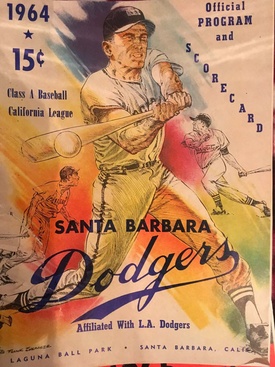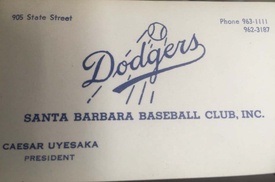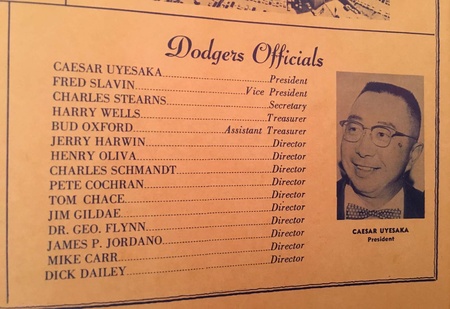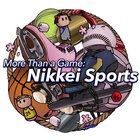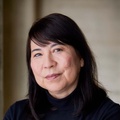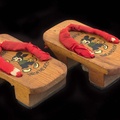When manager Dave Roberts and the Los Angeles Dodgers clinched a long awaited World Series title, the journalist in me felt pretty happy for one of the truly good guys I wrote about over the years as a player, coach, and skipper. As a fellow Nikkei, watching the Okinawa born Roberts, whose mother is Japanese and late father African American, the same scene elicited more powerful feelings within while triggering childhood memories of watching baseball games with Mr. Santa Barbara Dodger.
My Uncle Shizuo “Caesar” Uyesaka was given the aforementioned nickname while he was the president of the Los Angeles Dodgers minor league affiliate in Santa Barbara, California in the early 1960s.
Uncle Caesar and his wife, Reiko, moved to the small coastal town shortly after being released from the Poston Internment Camp at the end of WWII. Here, he and his brother Hideo, a decorated war veteran who was a medic in the 442nd, built a successful auto parts business in town. Caesar and Reiko raised their three children, Linda, Robert, and Paul here while the patriarch became a beloved civic leader via sports.
Although he liked all sports, baseball was Caesar’s love and it showed, when in 1961 he and his buddy Jerry Harwin convinced the fledgling New York Mets’ brass to house their Class C minor league team in tiny Laguna Park, a rustic field located on Santa Barbara’s Eastside that was later the influence for the home ballpark in the movie “Bull Durham”. When the Mets moved on two years later, the pair of movers and shakers roped the Dodgers to house their Class A team 100 miles north of Dodger Stadium in 1964.
With the Santa Barbara Dodgers, players like future Hall of Fame pitcher Don Sutton and Dodgers fan favorite-to-be Wes Parker cut their baby teeth at Laguna Park while 1959 World Series MVP Larry Sherry was a coach of a club that was far removed from the glamor of the baseball cathedral that sat in Chavez Ravine.
Here, Uncle Caesar and Harwin did everything to appease the big club’s brass from heavy promotion to cleaning the dirt and smudges off baseballs to get them ready by game time. His efforts were appreciated enough that Uncle Caesar earned a lifetime pass to Dodger Stadium and more importantly, the ear of the front office even after poor attendance caused the club to move the minor league team to Bakersfield four years later.
I was born too late to experience those days, but when I was a child I enjoyed holing up with him in his basement lair to watch the Dodgers play during family gatherings. Once in a while, he’d tell of stories of general manager Al Campanis calling him in the middle of the night or manager Tommy Lasorda’s expletive-filled complaints about the umpires whenever Caesar stopped by the park. But most of the time, we would sit silently under the gaze of the watchful eyes of the portraits of Dodgers players hanging on his wall until he fell asleep.
A few times I’d look over and see him staring out the glass door lost in thought, and wonder if he was thinking about his son Robert, a Green Beret sergeant killed in 1968 during the Vietnam War.
He took me to a game once when I was nine. The memories come back to me in snippets but remaining as crystal clear as the blue skies above the stadium—An usher greeting “Mr. Caesar” without asking for a ticket—sitting next to the field and smelling the grass while watching the gleaming white, blue, and red trimmed uniforms mill about in the dugout—gloating over the poor saps sitting in the upper reserve deck out behind the left field foul pole (a place where I usually sat with my family to watch what looked like ants scurrying about the field)—legendary announcer Vin Scully’s voice on radios throughout the stadium—the tanginess of the relish on Dodger Dogs—the “No Admittance” sign hanging over the clubhouse door watched by an unsmiling security guard who stuck a “Dodgers” sticker on me before telling me “There, now you’re on the team”—getting a napkin autographed “To a future Dodger” by Uncle Al (aka Dodgers general manager Al Campanis)—passing Frank Sinatra sitting on a lounge couch who said hello only to have Uncle call him Fred and later saying “I betcha you didn’t know Fred was his given name.”
I never went to another game with Uncle, but he always seemed to get my family World Series tickets whenever the Dodgers played. Uncle Al even came through for me and my friends when we couldn’t get tickets to see a sold out game Fernando Valenzuela was pitching in. Sadly, Al Campanis was later fired for making some racially insensitive remarks on national television in 1987. Despite this, the two remained friends as did Caesar with manager Tommy Lasorda over the years. The boisterous Hall of Fame manager even spoke at a fundraising tribute for my Uncle. In an even bigger tribute, the University of California at Santa Barbara, named its baseball stadium Caesar Uyesaka Stadium.
In his later years, Caesar’s generosity towards me continued when he sponsored me to at the Ironman Triathlon in Hawaii in 1994. Giving him my race cap afterwards in thanks, he prominently displayed it amongst his Dodger memorabilia. Alas, the next year he passed away, one month after Japanese pitcher Hideo Nomo burst upon the baseball world and took Dodger Stadium by storm. While I found it interesting that Nomo’s father’s name was Shizuo, the same as Caesar’s given name, I was sad that Uncle Caesar wasn’t around to enjoy “Nomomania”.
I started writing about Major League baseball around the same time a Nikkei outfielder named Dave Roberts played for the Dodgers in the early 2000’s and when he was named Dodgers manager in December 2015, I had to pay tribute by covering his press conference for Nichi Bei even though it was a 200-mile round trip and I had a college basketball game to write up that night for our local paper. There was no way I was going to miss this.
While I didn’t talk to Doc Roberts that day, I did speak to his parents Eiko and Waymon at the press conference. I also ran into Uncle Caesar’s old buddy, Tommy Lasorda and asked him what Mr. Santa Barbara Dodger would have thought about all of this hoopla.
“I tell you what he would have thought. He would have been proud as the rest of us because he was one of us.”
Now in 2020, it’s safe to say that we Nikkei feel the same way about Dave Roberts.
© 2020 Michael Goro Takeuchi


